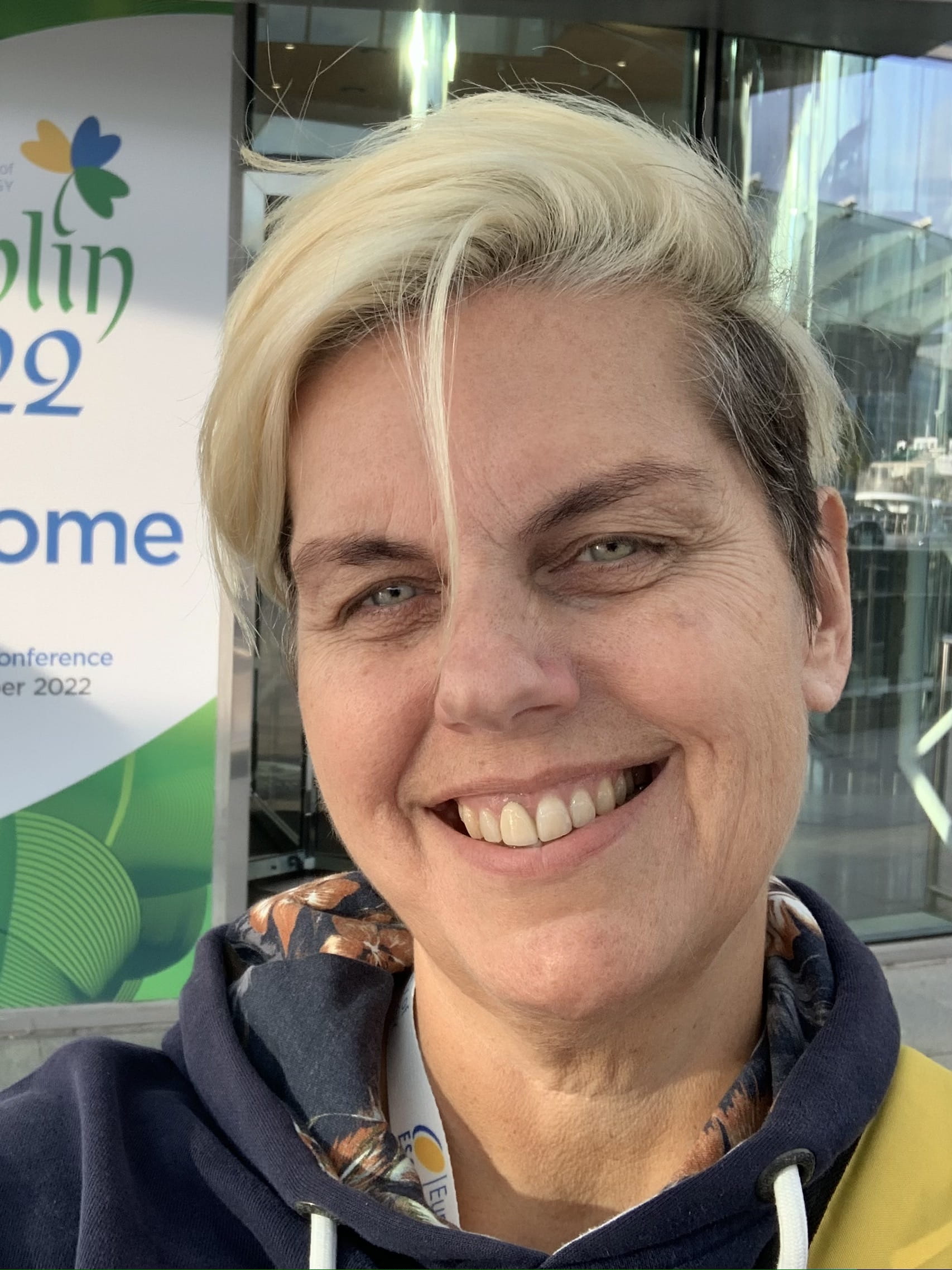Embracing Pride: Reflecting on LGBTQ+ visibility in surgery

09 Jun 2023
Ginny Bowbrick
When I was a medical student at Bart's, the West End theatres would donate tickets to their productions for students and nurses. One stand-out show still vivid in my memory was seeing "La Cage aux Folles" in the original London production in 1986. The show had opened on Broadway a few years earlier in 1983, and became the first Broadway musical centred on a gay male relationship. In London, the show sadly only ran for 301 performances, and the short run and financial failure were blamed on the AIDS crisis at that time, as producers were uncomfortable about portraying gay lives on stage quite so openly due to fear of public backlash.
For those who haven't seen the musical, it is a magnificent humorous musical farce. Not surprisingly, the finale song, "I Am What I Am", has become a gay anthem, in part helped by Gloria Gaynor's rendition from 1984, and includes the lines "It's my world that I want to take a little pride in, my world, and it's not a place I have to hide in."
This brings me to why I'm writing this blog in Pride month. This is a month when we use our visibility to break down barriers while celebrating our community and normalising our identity to those who aren't LGBTQ+. This has been more difficult in Medicine as a profession without even magnifying the issues in surgery; the BMA/GLADD survey from 2022 showed that only 46% of lesbian, gay and bisexual medics and 34% of transgender medics felt able to be open about their identity at work to their colleagues. So they are not able to be themselves and talk openly within their teams, hiding an integral part of themselves every working day, which must be utterly exhausting. Visibility and role models are vital in empowering those who are not out to see it is possible, and we in PRiSM hope that our existence will be able to help LGBTQ+ surgeons see that they can be true to their identity at all times.
It makes the story of Patrick Trevor-Roper all the more remarkable and praiseworthy. He was an Ophthalmic surgeon at Moorfields Hospital and practised at a time when the Faculty of Ophthalmologists was still part of the Royal College of Surgeons of England (RCS England). He was one of only three gay men who gave evidence to the Wolfenden Committee on "homosexual offences", as they were termed in 1955, which led to the decriminalisation of homosexual acts in 1967. He took a great personal risk in giving evidence and was named only as "The Doctor" in the report, with the other two men giving evidence also given code names. One of them, journalist Peter Wildeblood, had only just been released from prison after a recent conviction for homosexual offences, so the risks were real and close to them all. Trevor-Roper's story is available to read and is inspiring to us all as an example of fighting for what you believe in. Trevor-Roper continued to advocate for gay rights and was one of the founders of the Terence Higgins Trust in 1982.
1967 is within the lifetimes of many of us still practising surgery, even if we were only children at the time. However, more recently, it was not until 1992 that the World Health Organization declassified homosexuality as a mental illness and for transgender health issues this came in 2019; the latter within the living memory of all of us. Although these important steps have occurred, there remain countries in the world where being LGBTQ+ is illegal and punishable by imprisonment and even death; the world is a smaller place for the LGBTQ+ community to travel safely.
So Pride month remains necessary and still important as a time to reflect on how far we have come and also what further needs to be done. The words of that song are going around in my head, and I'm definitely not hiding away in our profession. Bring on the long staircase, and I'll make my entrance now as the first Out and Proud RCS England elected Council Member!
